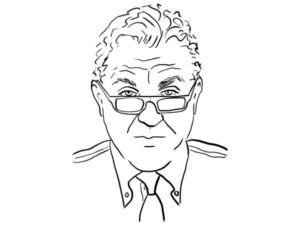As the leading independent source of news in oncology, The Cancer Letter has decided that it is our moral imperative to provide coverage of COVID-19 free of charge until this crisis is resolved.
On a recent call with directors of cancer centers, NCI Director Ned Sharpless reminded us that quarantines present opportunities for scientists to think deeply.
The COVID-19 crisis has consequences not only for those who have become infected and the doctors and nurses who care for them. The care of other patients is also threatened by the increasing stress that national health systems and societies as a whole are under.
Week after week, Giuseppe Curigliano is waiting to see the first signs of a slowdown in Italy’s cases of COVID-19, and week after week, he is disappointed.
The Sidney Kimmel Cancer Center at Thomas Jefferson University has been developing a scalable telehealth program long before the spread of SARS-CoV-2 in the United States.
Hollander: Fix telehealth infrastructure—or America will be just as unprepared for the next pandemic
As U.S. health systems switch to telehealth to connect with patients—via phone calls and online video conferencing—during the COVID-19 pandemic, providers are quickly learning that the lack of a national infrastructure for telehealth is making it difficult to reach patients.
A class of drugs that has been used to treat adverse events associated with CAR T-cell therapy is emerging as a potential treatment for COVID-19.
As the incidence of the COVID-19 pandemic increases in U.S. communities, the needs of cancer patients, and those caring for them, are at the forefront of our attention and action.
When The Cancer Letter spoke with Giuseppe Curigliano last week, he described the atmosphere in Italy as “spectral.”
The predicament in which Janice Cowden finds herself is so ordinary in today’s pandemic-struck America that it’s repeated thousands of times—and therein lies its horror.














